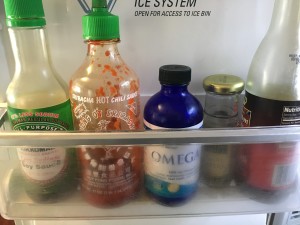In our day-to-day we often come across folks that just seem "better" at certain things than others. Often, we chalk this up to talent or ability, and perhaps, sometimes that is true.
However, rather than being more talented, maybe they have a way of making things easier. And, this "way" is likely unconscious to them, but it can be willful for you.
We've talked about "decision fatigue" before. There is some convincing reasoning that shows this type of fatigue can really affect us and often is perceived as a lack of self-control. Really what happens is that we've "used up" our bank of self-control /decision making on many other little things and when it comes time to make a more important decision, we don't have any juice left.
Think about the multitude of choices you need to make throughout the day. How many of those are probably inconsequential to the outcome of the day, let alone your life?
I'd wager that less than 20% are that important.
So what does this have to do with being better at everything?
Self-Control and the ability to make decisions are just examples Have you ever observed someone and thought "He has so much self-control" or "She is so decisive"? We've all had similar thoughts when comparing our perceived inabilities to the success of others. These people don't have a greater amount of self-control or decisiveness; they've just set up their lives in such a way that they need to use those "muscles" less often.
Next, go beyond self-control and decision making to habit-forming. Once we form a good habit, be know that the good behavior associated with that habit becomes so much easier to carry on consistently. And, we know how to form habits: do something routinely and repeatedly. Yet, forming a new good habit seems like one of the most difficult things to accomplish.
One of the ways we teach (and test for) compliance in personal training clients is through daily fish oil supplementation. Barring any allergies /dietary restriction, this is something that everyone can do quite easily. Although the quantities will vary depending on the individual all they have to do is swallow a pill or gulp down a spoonful of oil. It's simple and not time consuming, but the success rate is way below 100%...at least a first.
Why?
Everyone wants a fancy program and quick results.
What that means is the necessary steps to reach a goal aren't seen as changes in routine behavior, but rather short term novelty-tasks to reach a goal. When tasks are out of the norm they require more energy and encounter more resistance. It's then harder for them to become routine and eventually habit.
How can you make the new tasks needed to reach your goals routine and habitual? You need to incorporate them in to your day-to-day and perhaps you need to make some incremental changes to your daily routine (more on an easy way to do that in a later post).
Here's an example of something that I did unknowingly until my wife pointed it out.

As you can see, the fish oil is right next to the hot sauce. Everyday, my first meal is exactly the same: 2 eggs, 1/2 cup cottage cheese and a serving of fish oil and of course hot sauce. As the saying goes: "I put that stuff on everything".
Two important things are happening here.
1 - It's the same everyday. No decision needs to be made.
2 - No "remembering" needs to occur. I'm always going to be using the hot sauce and the fish oil is right there reminding me to take it everyday.
This is just one example of how simplification can help us reach our goals.
I'd love to hear from you. What are some examples of simplification that you use in order to reduce decision fatigue and increase self-control?
Sincerely,
Somnath Sikdar
Master Instructor
